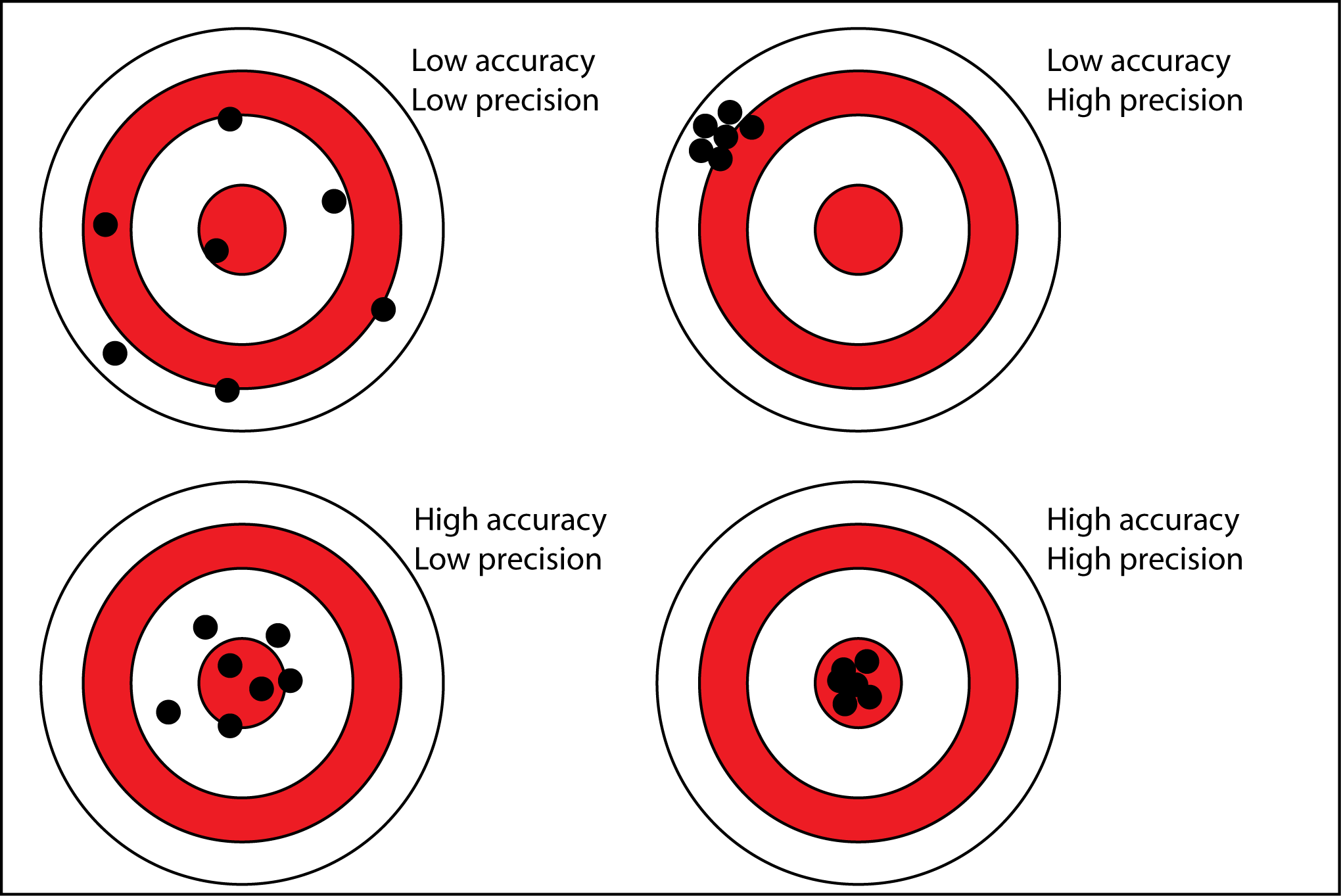Doctor MJ wrote:f4p wrote:...
Okay:
First, you continuing to go "whatabout" with the problematic RAPM values as riposte to problematic PER values is getting annoying. Focus on the responses that have already been given or just leave it alone.
To try to focus us on the actual issue here:
You see folks being inconsistent about their behavior toward PER compared to RAPM.
You correctly see this as a possible source of epistemic bias.
You believe that this inconsistency is utterly unjustifiable.
I have previously given elaborations to try to make clear the difference, which I'll now scroll to see if you addressed in a way I feel compelled to respond to, but the way you start all this by pointing to the same thing again, makes me think we're not going to get much further here.
I know it can get frustrating when not seeing eye-to-eye with someone; we've been there between the two of us, right? (if you agree with nothing else I say in this post, I'm sure you'd agree with at least that much!

)
But for my part, I think f4p has comported himself very well in this discussion, and I actually don't think he's gone far off point (at least, not much more than you have yourself). More than anything, I think you're both just kinda shooting past each other [as is often the case]; and to be fair to f4p, there has been [to my eye] some mixed messaging on your part (I'll elaborate below).
If I may stick my big nose into things and offer my own observations (however welcome they may or may not be).....
I gather that in some prior discussion [which I missed] you gave extensive elaboration/explanation for how various bizarre ["outlier"] RAPM values for certain players in certain years came about (in essence: explaining away the weirdness).
And you HAVE [to some degree, perhaps in more vague/broad terms] done the same for how/why Andre Drummond's PER result is wrong (that is: explain why it pegs him very high/good, when he's actually not).
It's where you [and perhaps a number of others] go from there [conclusions on how to then use the stats] that differs dramatically; which is basically what f4p has pointed out (which he can't very well do without drawing the comparison ["whatabout"]).
With RAPM, the tone and tenor of how to accept explanations for outlier/bizarre results was something like [from what I gather of this prior discussion]: "This is how that may have happened, and that makes sense. Stat still very useful, just gotta be concscientious of the context."
But f4p perceives that PER does not receive the same treatment.
He perceives [I think] that despite some adroit observations on your part for
why PER gives a misleading result for Drummond ("explaining away the weirdness", perhaps similar(ish) to what you did for weird RAPM results??), the take-away impression on the stat is still something like: "Look how badly is misrepresented him. It's not a stat that should be trusted or given much of any weight in an argument."
I'm not sure if that was your intent, but I must admit that f4p is not the only one for whom that was the perceived insinuation.
Again, there is arguably some mixed messaging.
While you [in posts after the inciting reply] said this.....
Doctor MJ wrote:In general my advise would be to use all complex stats - whether PER or RAPM - as first-pass analysis tools only, and then to use them along with other tools to drill down into the actual "what happened for the team".
And this....
Doctor MJ wrote:I'm actually fond of stating that stats shouldn't be dismissed simply because you don't like a particular player outcome. Instead what you should do is ask why the stat became so misguided in this specific circumstance.
......that actually
does contradict what you had said previously.
In the initial reply you had stated:
Doctor MJ wrote:the existence of a guy like Andre Drummond (the other "AD") being able to trounce old-timers by this stat as well really makes clear how limited it is as a tool.
And....
Doctor MJ wrote:so if a stat thinks Drummond is better than old Hall of Famers when the reality is he's not even good enough to play for a contender as more than a guy to fill out the bench, I can't take it [PER] as much of an argument.
This has the feel of a broad, summary judgement of the metric.
And it seems [at least as worded here] that PER is damnable and of marginal or negligible value simply for the
mere existence of Drummond's result.
You also said----right on the heels of suggesting no stat should be dismissed because you don't like a result---the following:
Doctor MJ wrote:In the case of Drummond, the answer is that use of box score-based stats can allow a big man to fill up the box score pretty dang well without him knowing really knowing what he's doing out there, and this can lead to a fool's gold situation where you think a player is your franchise player - complete with max contracts, re-designed systems around him, and even all-star appearances - when really he was never capable of being a starter-level player against playoff-level competition.
We then take what we learn from the data point and apply it back to the other players. Good performance in the metric obviously is not a damning thing, but if the metric cannot tell the difference between a superstar and and a benchwarmer, then you have to ask what information you can expect to glean by looking at the stat for new players.
This one is less direct (it's more about tone [and tone is SO hard to interpret in text])......but the bolded could be construed as saying "there's little-to-nothing of value to be gleaned from this stat, so why bother with it?"
So, you might have to forgive some of us readers a bit of confusion. Because in a number of ways it sort of feels like you're saying: "Never dismiss
any stat out-of-hand because of a weird/bad result (except PER....it's crap)".......which is a contradiction in itself.
Now to be fair, you did also state that your low opinion of it is also based upon a belief [paraphrased] that the things credited by PER do not, in and of themselves, carry much value (that is: toward winning;
impact; whereas, otoh, "impact" is EXACTLY what RAPM attempts to identify and credit).
fwiw, I'm not sure I entirely agree (about PER, I mean). I think a few things PER places value on generally [or at least frequently] positively impact the outcome, even if it gives equal credit to things that are not always equal (e.g. steals accrued at the expense of excessive gambling will be counted the same as steals that come within the context of sound team defense; not all assists are equal in value; not all blocks are equal in value; shooting efficiency is credited by PER but not nearly enough [imo], and thus points for points sake looms excessively large; etc).
What's more (and f4p pointed this out): PER often "gets it right", even if it does so sort of by coincidence---or rather
by accident, if you will: because the really good players---in process of doing those things that tend to produce profound positive impact---frequently tend to also fill up the stat-sheet with those things which PER values.
I think there's a philosophical axe to grind here.
On the one hand, you might smirk and decide: "I'm not going to place any weight in a stat that only gets things right
by accident!"
But on the other hand, one might suggest: "If it's getting things right often enough to pass the smell test, does the manner in which it got there really matter overmuch?"
idk......that's a philosophical debate that I'm not sure I'm all that interested in having, though I will comment a little further below regarding your visual aids.
But (fwiw) as f4p's pointed out repeatedly: PER rankings do actually dove-tail pretty well with the list results so far.
I might also point that the top 10 players by best single-season
scaled rs PER (recall I'd done a scaled version to account for variations in league parity) are:
Kareem Abdul-Jabbar
Michael Jordan
Wilt Chamberlain
Stephen Curry ('16)
LeBron James
Julius Erving ('76 [ABA])
Bob Pettit
David Robinson
Shaquille O'Neal
(*Nikola Jokic)
The 10 best in single-season playoff scaled PER are:
Kareem Abdul-Jabbar
Hakeem Olajuwon
LeBron James
Julius Erving ('76 [ABA])
George Gervin
Michael Jordan
George Mikan
Shaquille O'Neal
Tim Duncan
(*Nikola Jokic)
*I've only updated my sheets as far as '20, but I'm almost certain '22 Jokic would make the cut in both rs and playoffs.
For a stat that isn't measuring anything important, it seems like it does a reasonable job of identifying who the best players are (at least at the highest levels). Obviously some "glitches" and "outliers", but that's why we cut it with OTHER indicators a pieces of information. If those other indicators more or less fall in line.....
And with regards to older players, it's a little bit of an "any port in a storm" situation: there's so much less information to go on. So can we really afford to be dismissive of a metric that generally does this^^ well at the high levels? (tbf, I do think there is a point where there are "diminishing returns" on PER's accuracy in gauging player quality, as we get further below the super-elite).
To be fair, at one other point you mentioned it was more an objection to **
the manner in which PER was being used that you were speaking to. (**in a manner that basically says, "Look how high he ranks in PER. He must be super-good and belongs in the conversation here.")
However, f4p pointed out [correctly, I might add] that similar use is applied to other metrics in this project. Even by you:
Doctor MJ wrote:I think another perspective to take is that our career playoff +/- leaderboard for the data we have goes:
1. LeBron
2. Duncan
3. Green
But similar use of these other metrics often doesn't seem to garner the same blowback (which again, is what f4p has pointed out).
Doctor MJ wrote:Okay, so then back to the PER vs RAPM comparison, the issue here is that you're conflating precision and accuracy as if they are the same thing.
The issue with RAPM is one of variance or noise - aka limited precision.
The issue with PER is one of accuracy limited by bias.
To use the classic visual example:

PER is the image in the top right, RAPM is the bottom left. Because we have nothing in the bottom right, we need to use some of both the top-right and the bottom-left in our analysis, but that doesn't mean we treat their respective weaknesses identically.
This ties back into the philosophical axe to grind.
RAPM is aiming at the right target, the target you're
supposed to be aiming at (the bull's eye), but does a sort of crappy job of consistently hitting it.
But PER isn't even aiming at the right target (it's shooting somewhere off the side), though it hits what it's aiming at pretty well.
I suppose I more or less agree, though I'd wager we differ in degrees.
For example, I suspect I don't think this "wrong" target that PER aims at is quite as far away from the bull's eye as you. And since it usually hits what it's aiming at, it thus tends to be "kinda close" to that bull's eye very often.......which makes it of some value, imo (even if it is wrong-headed [aiming for the wrong goal] in theory).
Doctor MJ wrote:I'm saying there's literally a bias in PER toward big men,
Or is it simply that big men are "more important" in the game of basketball (generally and historically speaking)? This is perhaps another philosophical axe. As I'd posted regarding the demographics of our top 35: big men are "over-represented" (I think because it is, quite simply, a big man's game).
Anyway, I'll stop there I think.
"The fact that a proposition is absurd has never hindered those who wish to believe it." -Edward Rutherfurd
"Those who can make you believe absurdities, can make you commit atrocities." - Voltaire







:no_upscale()/cdn.vox-cdn.com/uploads/chorus_image/image/72244362/1487207362.0.jpg)

















